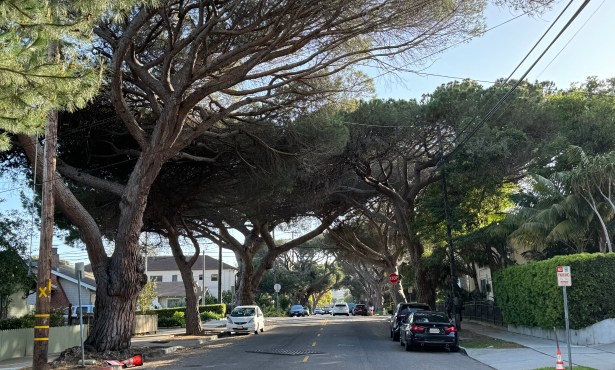First of May Means Union Contracts
UC Students and Campus Workers Rally
A broad coalition of UCSB unions, including faculty, staff, and students, will rally on May first. The immediate reasons are clear: the American Federation of State, County, and Municipal Employees, which represents clerical, grounds, and service staff across the University of California system, is negotiating an employment contract for its 22,000 members, 500 of whom work here in Santa Barbara. The UCSB Professional and Technical Employees union, which represents 150 workers on our campus, will begin negotiating its contract in September. The United Auto Workers, which represents 1,800 teaching assistants on our campus, will begin negotiating in June 2018.
We expect the University of California to offer salaries, benefits, and workplace protections — from job security to basic safety precautions — that make living and working in Santa Barbara tolerable. But if the university does not, asking for more from those with less, we aim to bargain for our livelihoods with the support of the local community.
These are the immediate reasons. But collective bargaining also has a broader significance that community members may not understand, one that is celebrated on May Day.
May Day celebrations have deep pre-Christian roots in continental Europe. May Day festivals have always been celebrations of spring — the season of rebirth, growth, and joyful life. Since the late 19th century, May 1 is also celebrated as Labor Day or International Workers’ Day across the globe.
The modern May Day holiday originates with the popular calls for an eight-hour work day in the decades after the American Civil War. In those years, the question of wage labor in a free society of independent proprietors brought the Congress to a gridlock. In the face of divided government, people began to take collective action to improve working conditions. In 1877, the national railroad system was shut down when the railroad corporations refused to bargain with their employees, who had assembled a negotiating committee.
By 1885 these committees had formed national bodies that voted for a national day of action. May 1, 1886, would be the day of a national strike for the eight-hour work day.
When the day came, major cities shut down. By day three, violence broke out in Chicago’s Haymarket Square. The movement for the eight-hour day suffered a defeat — local organizers, charged with anarchism, were tried and executed.
But a tradition was born. And though the idea continued to stall in Congress, it never left people’s minds. In 1937, Franklin Roosevelt’s government finally secured legislation regulating wages and working hours. May Day has become an international phenomenon.
Collective bargaining is just one of the traditions that have descended from that fateful dream of social reform. In 1970, May Day was the occasion of the largest anti-war protest in American history against American intervention in Vietnam. In 2006, May Day was the date Latino activists chose for the first “Day Without an Immigrant,” when millions of immigrant workers marched through the streets of our cities to demonstrate their vital role in operating the American economy.
Citizens of every nation have learned the idea of International Workers Day — a day for the great majority. It is only by their consent that the faucets and the trains run, or the food gets from farm to table, or the garbage from home to dump, or the students educated. This great majority are the only reason the stores open or society functions at all.
Which brings us back to collective bargaining at the University of California. It is not unusual for some administrators such as Chancellor Yang or UC President Janet Napolitano to cite concern about budgets they do not set. It is not unusual for politicians to budget only what they think their constituents are willing to pay. And it is not unusual for wealthy businessmen to argue to their representatives that they can afford only so much, or they will move.
But few of these decisions matter without the great majority who ensure that the University of California opens and closes each day. This May Day, we hope the community of Santa Barbara will support their neighbors in bargaining with the University of California. And we urge the university administration to respect and refrain from punishing those workers participating in this historic tradition.



